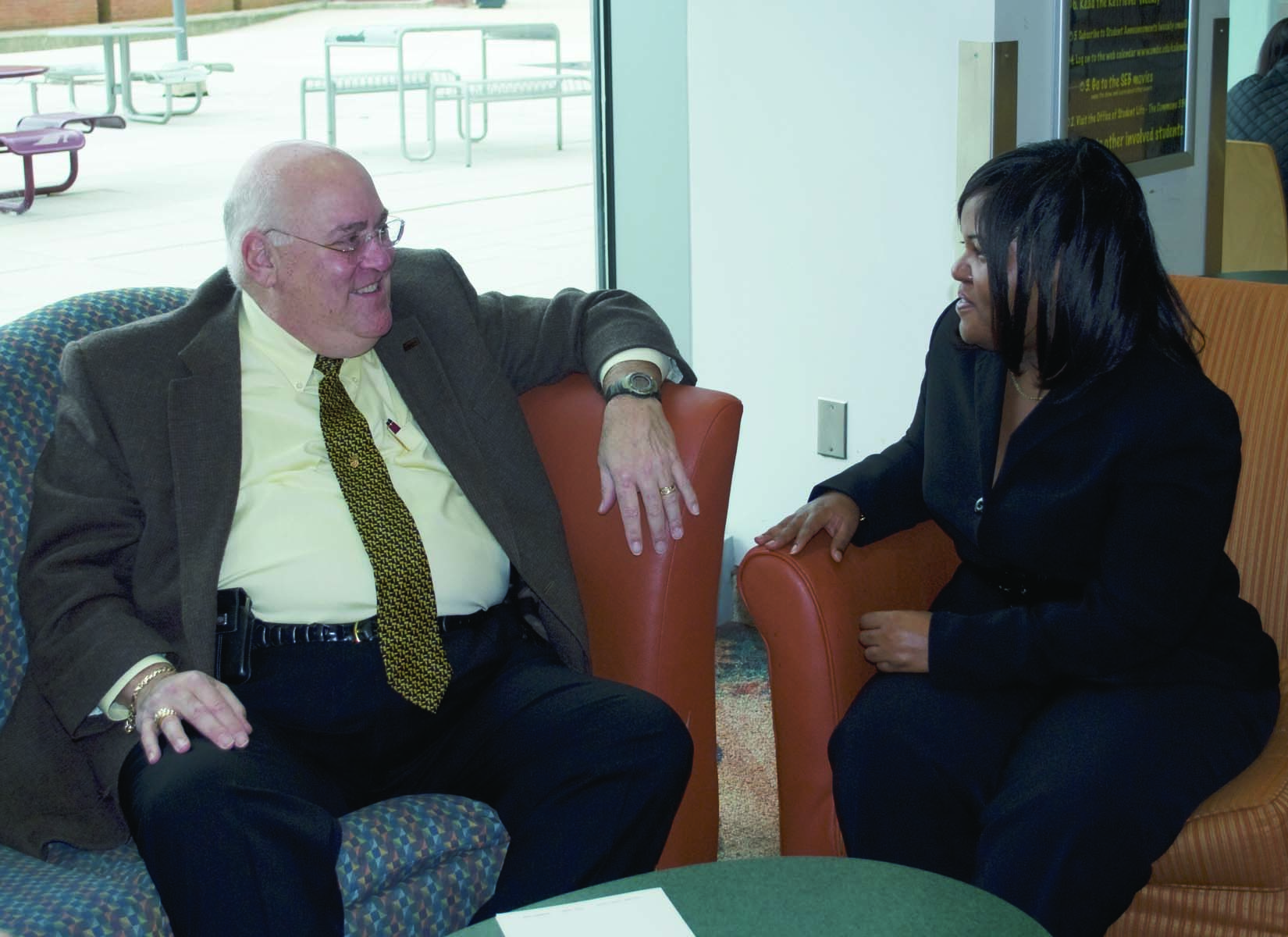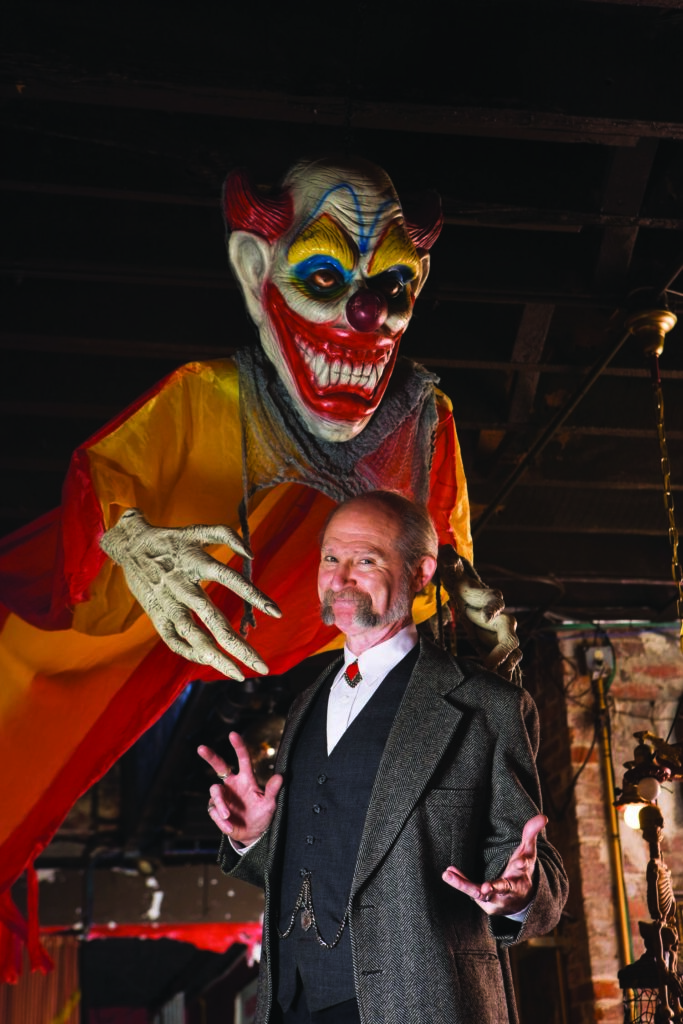Judge Dana M. Levitz ’70, theater and Alicia Wilson ’04, political science, have more in common than legal careers. Both are also winners of UMBC’s Outstanding Alumni of the Year Award (Judge Levitz in 1993, and Wilson in 2009).
Levitz was a member of UMBC’s first graduating class. He retired from a long and distinguished career on Maryland’s Circuit Court last year. Wilson is an associate at Gordon, Feinblatt, Rothman, Hoffberger and Hollander. She was a Sondheim scholar and the recipient of a prestigious Harry S. Truman scholarship.
How did studying drama help you become a good trial lawyer, Judge Levitz?
Judge Levitz: I think the vast majority of college students who think they want to be lawyers major in political science…. Political science has nothing to do with law school or the practice of law. I’m not saying that it’s not worthwhile. It’s certainly as valuable as any other liberal arts major – other than theater, in my opinion. But there’s no advantage to it… What did you study?
Wilson: Political science. (Laughs.)
Judge Levitz: See? (Laughs.) Theater was a phenomenal preparation. When I started at UMBC, the major was called “speech and theater….” You took not only courses in speech, giving a speech, but also in oral interpretation. How do you read something? How do you take a script or a document and read it for dramatic effect…There were courses in performance…. You have to read, understand the motivations of a character, the emotions, and convey it to an audience. What better preparation could a trial lawyer have than that? It literally is the ideal preparation.
How did liberal arts help you prepare for law school?
Wilson: Political science exposes you to so much of the world. It shapes your views of those issues that you want to advocate for, and that you become passionate about, because you gain knowledge of the intricacies of those issues.
What was it like in the early days of UMBC?
Judge Levitz: My wife and I started UMBC the first day it opened. We were two of the original 600 students in September 1966. There were three buildings built…. It was all mud. They put down wooden planks so you could walk from the parking lot to these three buildings.
But the great part of it was that everybody knew everybody… and since they had the vision of what this was going to become… they brought in some really high powered professors to start the departments. And the neat part about being the first students was that we were always the senior class… and we always had the top professors throughout our four years…. I found one of my bills and it was $250 a semester.
The UMBC campus in that era reverberated with social and political issues of the day. What about your generation, Alicia?
Wilson: Before 9/11 we were a different generation. I think 9/11 made us more aware of the significance of the actions we take on a daily basis and how they impact the world. And also gave us a greater awareness of how the world views us… and our responsibility not just to those we pass on the street or see on a daily basis but our responsibility to people that we never see. And people who may not yet be born. We have an obligation to make an informed decision on how we live daily. That fired a lot of my generation up to promote change and feel like we had the power to do so.
So what attracted you to attend UMBC?
Wilson: Dr. [Freeman A.] Hrabowski. His passion for this school and for the students really inspired me. Knowing that I would have somebody who made a conscious effort to know my name, learn about my background, and try to help me achieve my dreams was so appealing that once I came to UMBC… I didn’t want to go to any other school.
Tags: Winter 2010


